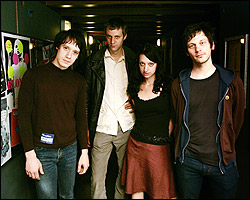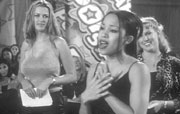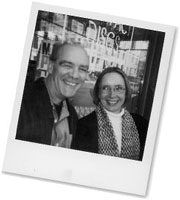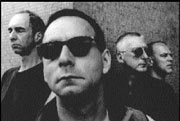LOVE WITH ARTHUR LEE
STEW
Experience Music Project, Sky Church, 770-2702, $19
8 p.m. Sun., July 28
Arthur Lee doesn’t fuck around.
Make no mistake, life has fucked around plenty with Arthur Lee. But Arthur Lee isn’t fucking around with life. He won’t plea bargain, suffer fools gladly, or play by anyone’s rules but his own. He has no desire to rehash the past or field any questions about guns, drugs, or his recent release from jail. And he doesn’t speak to journalists in—where, Seattle?—for any longer than 10 minutes.
As leader of Sunset Strip psych-pop legends Love, Lee has long been regarded as an enigmatic and difficult musical genius.
The band’s string of mid-’60s albums—Love, DaCapo, and, especially, Forever Changes—are consistently ranked alongside those of the Beatles and Beach Boys as the greatest records of all time. That was all 35 years ago, though, and Lee doesn’t particularly feel like talking about that either.
But for some reason, Arthur Lee and I end up spending the better part of the afternoon on the phone together. We do talk about guns, drugs, and prison. We talk about Jimi Hendrix and the Rolling Stones and Charlie Parker. We talk about the old records and rumors. We talk about Hollywood and homelessness and Jesus being a black man. In fact, there is very little that we don’t talk about.
As a conversationalist Lee is contradictory and unpredictable, funny and often deeply emotional. But for every tangent he goes on, for every turn he takes, no matter what old alleyway he disappears down, he always returns with the same conclusion: None of that shit matters. It’s all bullshit. It’s about the show, about the songs. Don’t you understand? Don’t you get it? It’s about the music.
Only it’s not just about the music. Not when you’ve been unfairly prosecuted—Lee was sentenced to 12 years after violating California’s three strikes law for a minor firearms offense; he served six. Not when success in your native country has always been tagged with the “underground” qualifier. Not when stories circulate about you that are scandalous and often untrue.
So we talk about all of it, every last bit.
Arthur Lee is first and foremost a self- assured, vainglorious character:
“I don’t give a damn if you say I’m a junkie or a punkie or a dog or a cat. I don’t care.”
“I damn near created rock music.”
“I found out it’s not wise for people to talk about religion and politics. It’s not wise for an entertainer to do that. But the thing about it is, I don’t give a fuck.”
But he’s also random, hilarious, and willing to talk shit with the best of them. Especially if the subject is today’s stars:
“If you want to exercise or lose weight, go see ‘N Sync or Britney Spear [sic] or that Michael Jackson’s sister who changed her nose.”
The Lizard King:
“Jim Morrison wanted to be me. He went overboard, as far as I’m concerned, with how high he thought I was onstage and trying to be like me . . . he was just a poor soul.”
America’s favorite leading man:
“Tom Hanks? He’s a good actor, but he’s got a pretty big forehead.”
“The King of Pop”:
“Michael Jackson? He gave himself the title of King of Pop. He’s a great entertainer, but how many times do you want to see the moonwalk? The King of Pop? The King of Pop? What popsicle? If there was one question I could ask Michael Jackson, it’d be a short question: ‘What the fuck are you doing?'”
He’s also partial to deflating other royal celebrity egos:
“I’m just sorry that Elvis Presley actually thought he was king. Because there are no fucking kings in this world. The only king there is, is God.”
Mostly, he’s just plain honest, especially when it comes to his music and the new version of Love, featuring members of L.A.’s Baby Lemonade:
“I’ll tell you what: This is the best band I’ve ever had. I’ve got a full orchestra that sounds exactly like Forever Changes. I planned on retiring when I was 21 years old. And 35 years later, my records [rate higher] than the Beach Boys and Sgt. Pepper’s. Those guys are all right. The Beatles were my heroes. The Rolling Stones were my heroes. Beethoven was surely my hero. Jackie Wilson. Charlie Parker was the greatest musician I ever heard in my life. What he did with that instrument—I’ve never heard anything like it. Except, of course, the songs I’ve written.”
Make that brutally honest, particularly where the Beach Boys’ Pet Sounds is concerned:
“Sgt. Pepper and all of that; the Beatles with their fancy hair—they were my heroes. I don’t know if they stole from me or if I stole from them, but I haven’t written a lyric that has anything to do with Sgt. Pepper; and I sure haven’t written anything that had anything to do with that stupid shit the Beach Boys did—that Pet Rock or whatever. But we’re the top three, according to the critics. I don’t like rap music; I surely don’t like Pet Rock. I do love Sgt. Pepper.”
Plus, he’s got plenty to say about playing at Experience Music Project:
“If it wasn’t for me, there wouldn’t be no Jimi Hendrix. I’m serious about it. That museum is built for a person who I saw in rags, who [signed an autograph] for a dollar to get a bottle of wine. The people, they don’t know that stuff. This guy that built the museum: He didn’t know Jimi. I knew Jimi. I loved Jimi. Jimi was like watching my own self. The only thing that was different about me and Jimi, as I can see it, is that he stayed too long at the fair.”
His significance as a musical and cultural trailblazer:
“As far as living up to Forever Changes, I never played those songs onstage because I thought the songs were corny. I thought that the people weren’t ready for an integrated band, let alone someone with a mind instead of Malcolm X or Martin Luther King—someone who really created the first integrated band. The things they talked about, I was doing. Hell, I was with every white chick while [MLK Jr.] was walking down the street walking hand in hand and talking about judging people by their character. I was doing those things. I created the first integrated band. I created the first punk rock song, ‘7 and 7 Is.'”
And he’s proud of the European tour he’s just completed, during which he was honored by members of the British government:
“I was invited to Parliament while I was in Europe. They treated me with the greatest respect. They got down on their knees with their suits on and bowed down to me. They asked me questions like, ‘How many times have you been invited to Congress or the White House?’ The White House? Shit! The only white house I was ever invited to was the one my mother and stepfather painted.”
He’s still pissed off about his last lawyer, whom he says did nothing to help prove his innocence:
“It was a complete conspiracy; he was found to be inefficient counsel, and as far as I’m concerned, he should have died in his daddy’s dick. I was supposed to have fired that gun in the air. When they did the gunshot residue test, it was negative. There was nothing there. But this guy refused to object. And I put my life in this fucker’s hands. I didn’t cooperate. I didn’t plead guilty and all of that. I did serve my time, and I served it well. They made my life a cell (laughs, quoting from ‘Live and Let Live’). Every time I think about those songs I wrote, like on Forever Changes, they really haunt the hell out of me.”
And he’s pissed off in general:
“If I thought about the past, I could get super-duper pissed.”
As eager as he is to let the music speak for itself, he’s adamant about clearing up the ugly drug rumors that have persisted:
“I’ve never been strung out on heroin. Ask somebody, you know what I mean? Ask a drug dealer when I copped some heroin. Shit.”
Then, somewhere around the one hour point, he sums it all up:
“I put on a fucking show. I entertain people. You don’t have to believe me, I’m gonna show you. What I’m doing now is the ‘Prove It’ tour.”
Even for all his brutal truth and crooked diatribes—for all the elliptical genius of his music, Arthur Love is as fucked-up and uncertain as the rest of us. Late in the conversation, he asks me—quite sincerely—if I know the meaning of life, and I bust out laughing, telling him he’s got the wrong girl to answer that one. We’re both laughing, and then all the sudden we’re both very quiet. He says he doesn’t want to do any more interviews after this.
“People just don’t understand,” he tells me at the end. “They don’t understand that love on earth must be.”
You should’ve heard the way his voice carried over that sentence, like some sort of high priest, or better yet, a backwoods preacher. Yeah, love on earth must be . . . somewhere. But Arthur Lee is still trying to figure out exactly where.









